China Anbang crackdown: Who might be next?
Crackdown: China and bang: Airlines, football clubs, five-star hotels, and film studios. China’s biggest conglomerates have been snapping up businesses around the world, including some in fairly sexy sectors. For upon |Despite growing so big and borrowing so much, they were seen as untouchable because of their political connections. Crackdown.
That was until the middle of last year when, after seemingly unrestrained growth, Beijing suddenly turned up the heat on some of those giants.
And then last week, some real action. Beijing cracked down on one of those firms – taking control of insurance and financial giant Anbang and prosecuting the firm’s head.
This, analysts suggest, could indicate more intervention is on the way.
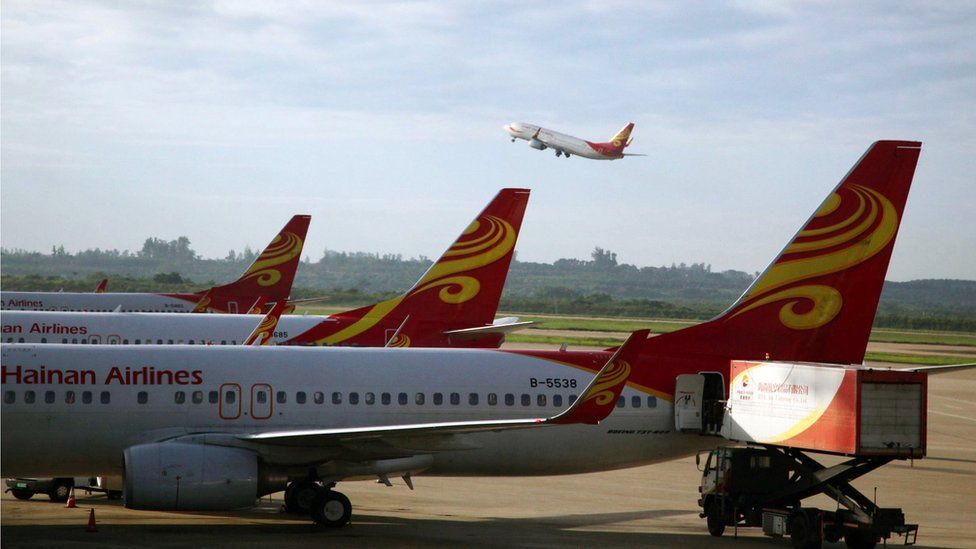 image copyright Getty Images
image copyright Getty Images- Extending Xi’s rule ‘would be a farce’
- The thoughts of Chairman Xi
- Charting China’s ‘great purge’ under Xi
Who might be next?
The move against Anbang was called a “warning shot” by the Economist Intelligence Unit.
But it is just one of the businesses which became known as “grey rhinos” – large, visible problems in an economy that are often ignored until they start moving fast and trampling everything in their wake.
And next in Beijing’s crosshairs, analysts predict, is likely to be HNA, which has been described as the biggest company you’ve probably never heard of.
Investing an estimated $40bn (£28.7bn) in the past three years, it differs from Anbang having primarily bought into “real businesses” rather than being built mainly around complex financial structures.
It owns China’s Hainan Airlines, airport services firm Swissport, airline caterer Gate Gourmet, holds a major stake in Deutsche Bank, has a 25% share in the Hilton hotel group, and owns Carlson Hotels, which runs the Radisson chain.
Financial Difficulties
While there’s no suggestion it’s in financial difficulties, expect Beijing to lean on HNA to get rid of “most if not all of its financial sector holdings”, says Michael Hirson of analysts Eurasia Group.
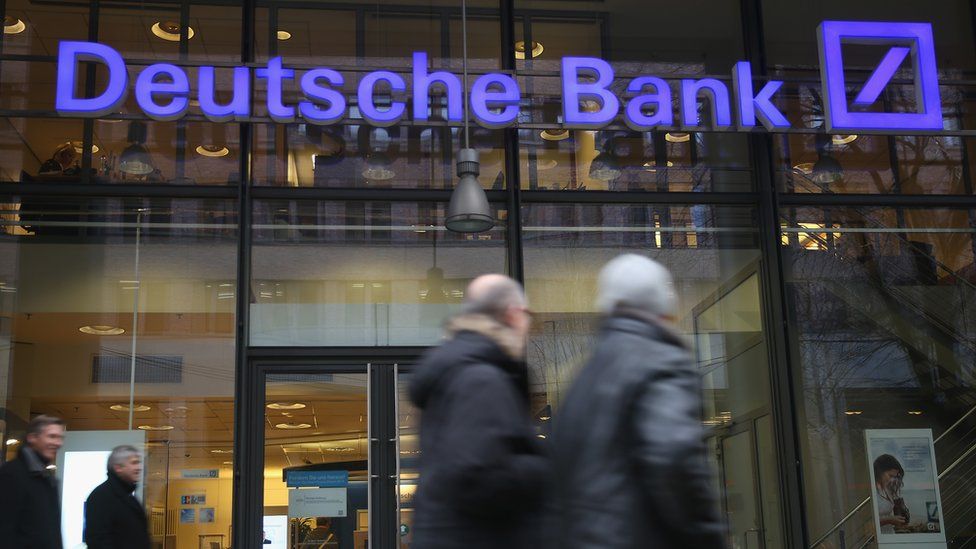 image copyright Getty Images
image copyright Getty ImagesEarlier this month, HNA said it had reduced its stake in Deutsche Bank from 9.9% to 9.2%.
While most of Anbang’s investors were individuals putting cash into things such as insurance policies, HNA’s backers are mainly institutions.
On the one hand, this would mean its collapse would be far less politically sensitive. The common man or woman on the street rarely sheds tears when financial giants get their fingers burned.
But Eurasia Group says we should not expect a too punitive approach from the government.
“Beijing is reluctant to impose major losses on bondholders, which would make it more expensive for many other Chinese corporates to obtain external financing,” Mr. Hirson said.
Significant bankruptcies would also carry political risks.
HNA hasn’t commented. But speaking last year to the BBC, chief executive Adam Tan was sanguine about plans by Beijing to tighten restrictions on Chinese businesses spending money abroad.
He predicted HNA would still get support from Chinese banks and could count on international banks as well because of its large presence outside of China.
It seems unlikely he will feel so secure today.
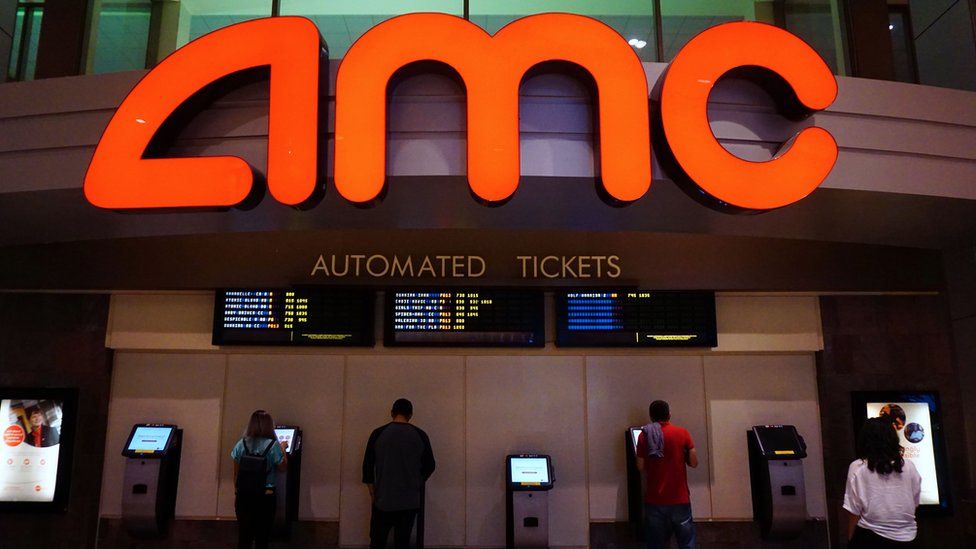 image copyright Getty Images
image copyright Getty ImagesWhat about Dalian Wanda?
Of all the Chinese firms facing a crackdown, Dalian Wanda has the highest profile overseas, partly because of the sort of investments it made.
Run by Wang Jianlin, among the country’s richest men, it grew into one of the country’s most prominent property developers.
And it invested overseas too, most noticeably in Hollywood – controlling the AMC cinema chain as well as Legendary Entertainment, co-producer of hit films such as Godzilla and The Dark Knight Rises.
But Mr. Wang, once considered a Beijing favorite, fell foul of the establishment, with lenders told to pull out their backing.
And after the warnings came he was quick to offload businesses, including theme parks and hotels in one of China’s biggest property deals as it focused on its core shopping mall and cinema businesses. A subsequent rejigging of the deal just added to the picture of chaos. Crackdown.
Earlier it had pulled out of a $1bn bid for Dick Clark Productions – the owner of the Golden Globe TV and film awards – with China’s clampdown on overseas investments blamed.
Michael Hirson of Eurasia Group described the asset selling as “aggressive moves” to “de-risk”.
They were, he added, “a painful decision for Wang but one that now looks very astute”.
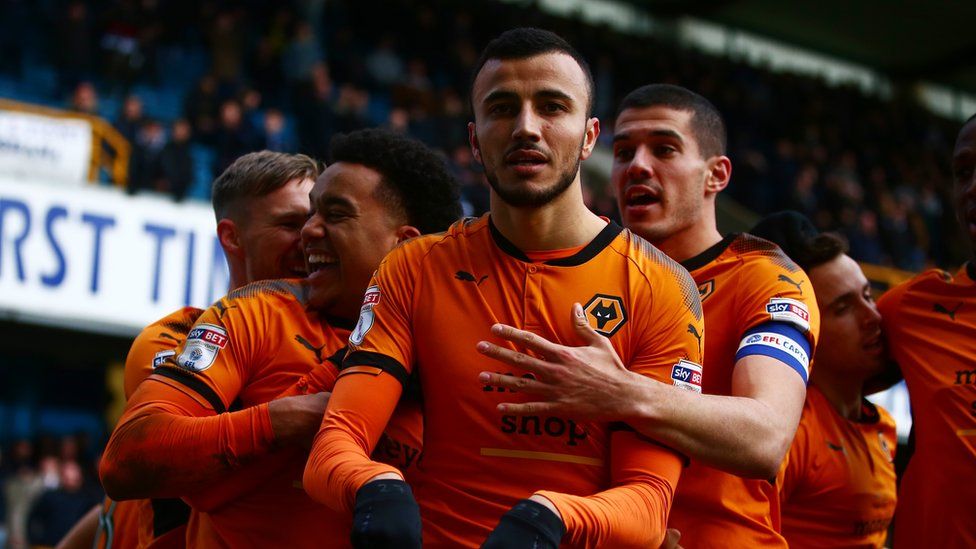 image copyright Getty Images
image copyright Getty ImagesWho else is in the spotlight?
The other big player put on the watch list in mid-2017 was Fosun.
It has investments in the English football club Wolverhampton Wanderers, leisure group Club Med, travel firm Thomas Cook, and entertainment business Cirque de Soleil.
And unlike the others, is still buying abroad.
Just last week, it said it had completed a deal to become the majority shareholder in Lanvin, France’s oldest surviving couture label. Though by its standards, the investment of about $120m is fairly small.
Both Wanda and Fosun “appear to be on the more solid political ground”, according to Mr. Hirson.
What does this mean for Chinese overseas investment?
The clampdown is very much aimed at the large conglomerates buying into a huge range of sectors.
Most other firms are able to keep investing.
But there has been a fall from the peak years of 2015 and 2016.
The number of Chinese deals in the US and Europe fell by almost 25% in 2017 from the previous year, Dealogic said.
And the rhetoric against Chinese investment in the US from the Trump administration – as seen in the collapse of some major deals – means this trend is likely to continue.
Just this week, Germany said it would be watching closely after Geely snapped up nearly 10% of Mercedes-Benz owner Daimler.
Why was Anbang targeted?
To recap from last week, Anbang firm was known for its aggressive international acquisitions, including New York’s Waldorf Astoria hotel.
But Chinese authorities have been cracking down on the financial industry to guard against excessive borrowing and risk.
The firm’s head Wu Xiaohui, who was already detained by authorities last June, is to face prosecution for “economic crimes”.
Analysts at Eurasia Group described it as “both a takedown and a bailout”.
“Beijing’s approach reveals President Xi Jinping’s approach to cracking down on conglomerates – punish wrong-doing by executives while sending a reassuring message to the markets,” said Eurasia Group’s Michael Hirson.
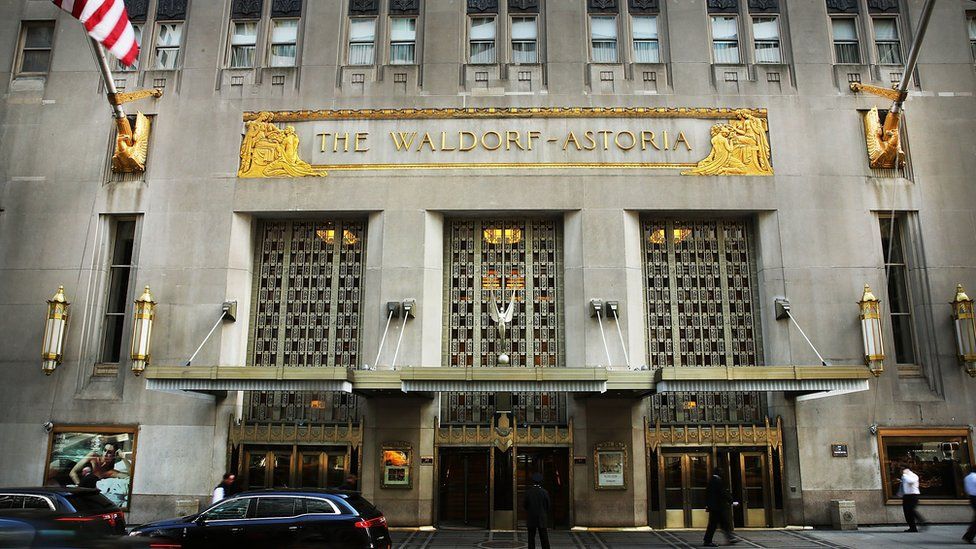 image copyright Getty Images
image copyright Getty ImagesChina could have nationalized Anbang instead (as, for example, happened during the UK banking crisis in 2008 with the Royal Bank of Scotland).
Or it might have forced its sale to another company (continuing the UK analogy, look at how HBOS was sold to Lloyds Banking Group).
Instead, it put it under the stewardship of China’s insurance regulator for one year.
This notes Mr. Hirson was a “relatively transparent and investor-friendly” approach, allowing the regulators to sell off Anbang assets and bring in funds while keeping it out of state ownership.
The article was originally published here.
China’s latest conglomerate crackdown casts dealmaking shadow
HONG KONG (Reuters) – When news broke this week that the chairman of CEFC China Energy, an acquisitive conglomerate, was being investigated for economic crimes, one particular group gulped – dealmakers involved with Chinese companies.
Even as China’s fast-growing conglomerates have been viewed by many global investors and regulators with suspicion for their opacity and finances, they have nonetheless been lucrative business partners for dealmakers, known for paying over the odds for flashy assets.
Now, more than ever before, would-be acquirers, sellers, investors, and advisors are having to assess who is in and who is out in Beijing, a politically tricky question at the best of times.
The probe into CEFC – which has thrown into question its $9 billion deal for a 14 percent stake in Rosneft, Russia’s top oil producer – came less than a week after the government announced it was taking control of the insurer Anbang, an equally eye-catching acquirer of assets. Anbang’s chairman, Wu Xiaohui, is being prosecuted for economic crimes.
The upheavals of the past weeks have left many dealmakers nervous – and unwilling to comment publicly about a topic so clearly sensitive in Beijing. The State Council Information Office, the Chinese government’s information arm, did not immediately respond to a faxed request for comment from Reuters.
Strategies on how best to navigate the latest upheaval range from focusing on top executives’ political connections to analyzing debt levels and the growth potential of the companies involved.
“It’s taken that if you are a major Chinese company, in all likelihood, there is significant government influence,” said Edward Mermelstein, a partner at Rheem, Bell & Mermelstein in New York. “It’s just a question of to what extent is their significant government influence.”
Hong Kong
Said a Hong Kong-based M&A banker at a global investment bank: “It will be just another reason for foreign sell-side folks to be very suspicious of major Chinese acquisitions, yet another hurdle that the Chinese firms will need to go across.”
Companies who appear to have Beijing’s backing include the carmaker Geely and, Fosun 0656.HK, another conglomerate with a one-time penchant for flashy deals, including a stake in Cirque du Soleil.
Geely last week stunned Daimler DAIGn.DE with its sudden acquisition of a $9 billion, 9.7 percent stake in the German owner of Mercedes-Benz.
Meanwhile, Fosun has in the past week snapped up two European fashion labels and taken control of a Brazilian broker in deals worth a combined $245 million.
DIFFERENTIATING DEALMAKERS
Beijing first put dealmaking conglomerates on notice last summer with a crackdown on their access to credit in the mainland and an edict barring “irrational” investments.
Since then, groups including Dalian Wanda and HNA Group have scrambled to ease the resulting cash crunch by offloading assets and changing business models while also pursuing more Beijing-friendly investment strategies.
Many bankers and other deal advisers are now pointing to the differences in financing style and even ambition as a way of distinguishing between groups who are in or out of favor.
Anbang, for example, has long been considered a quixotic dealmaker – its best-known asset is the Waldorf Astoria hotel in New York. It’s financing too has been questioned because much of it came from selling illiquid insurance and savings products, many with shadow banking links, to small investors, according to several regulatory and insurance industry insiders. Crackdown.
That sort of activity has been a particular focus of Chinese authorities worried about risks in the financial system.
China M&A head
“Anbang was an exception on a few fronts.” said one western bank’s China M&A head. “They were regulated, they were obviously too high profile for their own good, they were buying things the government doesn’t necessarily favor – like hotels and property.”
CEFC also transformed rapidly from a niche fuel trader into an oil and finance conglomerate, with an ambition to become an energy giant to rival China’s state-owned behemoths. Ye Jianming, CEFC’s chairman and founder, also had a high profile outside his homeland. Crackdown.
In 2016, Ye ranked above French President Emmanuel Macron in Fortune magazine’s ‘40 Under 40’ list of the world’s most influential young people, and in 2015, he was appointed an advisor to the Czech president on economic policies.
CEFC’s overseas holdings include property, a brewer, a football stadium, and an airline. However, little is known about how Ye raised the money to build CEFC or its ownership structure.
By contrast, a perceived strength of Geely’s chairman, Li Shufu, has been his company’s single-minded focus on cars and developing electric vehicles – sectors aligned closely with Beijing’s priorities – as well as a track record for managing acquisitions, notably that of Sweden’s Volvo in 2010.
Some dealmakers are openly confident. This week, Fo sun’s chairman, Guo Guangchang, told the Financial Times that he planned more overseas deals and that his company’s acquisitions were approved by the Chinese government.
He told the newspaper: “The Chinese government is very law oriented so they support the companies who respect the law.”
HNA and Geely declined to comment, and Fosun did not immediately reply to a request for comment. Attempts to request comment from Anbang went unanswered.
CEFC issued a statement Thursday disputing reports that its chairman was being investigated and said that it was “operating normally”.
WHAT, OR WHO IS NEXT?
Some investors are wondering if HNA might be the next to come under government pressure. The sprawling conglomerate warned creditors in January of a $2.4 billion shortfall in its ability to meet interest payments due this quarter and has suspended trading in several of its listed units pending restructuring news. Crackdown.
There are as yet no signs of direct government involvement.
In December, eight banks, including China Development Bank and China’s “Big Four” state-backed lenders met with HNA to discuss their lending to the group.
Analysts said they were braced for further developments among China’s conglomerates but cautioned that the whole saga should be viewed from a longer perspective of Beijing’s battle to rein in leverage and cut corruption.
Many top corporate executives in China have been reported to be detained in the past as part of a regulatory crackdown on corruption, though in most cases little details were given about those allegations.
“This is just a natural progression of China cementing its power but also its crackdown on corruption,” said Will Ballard, head of emerging market equities at Aviva Investors. Crackdown.
($1 = 0.8146 euros)
Reporting by Sumeet Chatterjee and Matthew Miller in HONG KONG, Gui Qing Koh in NEW YORK, Vidya Ranganathan in SINGAPORE, and Julie Zhu in Hong Kong; Writing by Jennifer Hughes in Hong Kong; Editing by Philip McClellan
The article was originally published here.


Comments are closed.